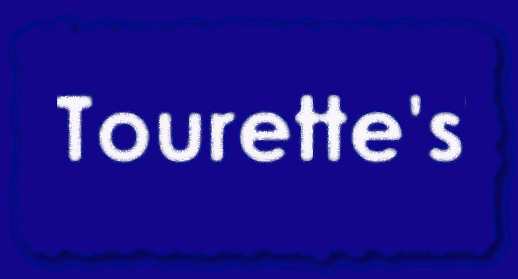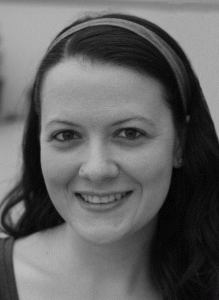Editor and Founder Vrinda Pendred discusses the highs and lows of making friends when you have Tourette’s Syndrome
Welcome back to this series on Tourette’s Syndrome. So far, we have discussed what Tourette’s is, causes and triggers, medications (including anti-depressants), alternative treatments, such as diet and vitamin regimes, and even more extreme measures, the grief process, being diagnosed, bullying and teachers, surviving adolescence, how Tourette’s affects self-esteem, being a parent with Tourette’s and being a woman with Tourette’s. If you missed any of these articles, please click one of the links above to read them.
This month, I want to spend some time talking about making friends when you have Tourette’s Syndrome.
Being the Only Tourettic in the Village
When I was a child, I didn’t know anyone else who had Tourette’s. I felt like that character in all the YA books / shows, who spends all their time pretending to be like the other kids – you know, ‘normal’ – because they fear that when the truth comes out, everyone will look at them differently and reject them. Only, I didn’t have a super power like Buffy the Vampire Slayer or Spiderman. I couldn’t see any way things could ever turn out okay.
As it happens, they did. I’ve said before: my friends didn’t care. They didn’t look at me differently at all. They had hardly even noticed my tics. I had built it up into a teen drama in my head, but it wasn’t as bad as that – in my case. If I had been the kid who had to do cartwheels all day, or punch himself in the throat repeatedly, or swear constantly…the story would have been different. I can’t begin to imagine how hard that must be – because there are kids out there just like that. They don’t have the luxury of keeping it secret and ‘pretending they’re normal’, like I did.
I’m not sure which is worse. On the face of, I guess you’d say having it out in the open is harder. In many ways, I’m certain it is. But the ones who keep it secret are hiding a fundamental part of who they are and exhaust themselves pretending it isn’t there, terrified of their secret getting out. It’s hard either way.
I grew up in the 1980s/90s, when Tourette’s wasn’t really something people knew about it. There’s still limited understanding of it today, but at least when you say the word, there’s a basic awareness of what you might mean. There was none of that, when I was a kid. There were no charitable organisations or Facebook groups arranging meet-ups. There was no real way for me to meet anyone else who faced the same challenges I did. I was just that lone weirdo at school or jerked around, blinked too much, and chirped.
If I’d known other kids with Tourette’s, I think that would have made a huge difference to my upbringing. I don’t believe your only friends should be others with the same diagnosis. However, knowing even one other child, my own age, who could relate to what I was going through likely would have helped me feel less weird, more able to talk about it, and more acceptant of myself. At the very least, there would have been someone to open up to when it all felt like too much – someone who knew exactly what I meant.
Searching for ‘People Like Me’
In my 20s, we had this magical thing I never had as a young child: the Internet. This was when social media as we now know it was only really just getting off the ground, so outlets were limited. However, I managed to find online forums for adults with Tourette’s.
With some trepidation, I signed myself up to attend a meet-up. My husband came with me for moral support. I was terrified, the way I always had been about meeting new people (I’ve since got over that fear, but it was severely debilitating when I was younger). About half the attendees were parents with children with a diagnosis, while the other half were like me – adults who had been diagnosed as children, or maybe in later life, but had never known anyone else who ticced.
That day was eye-opening. You probably expect me to say it made me feel like I belonged, at last – but it didn’t. In fact, what hit me most was how different we all were: that having Tourette’s didn’t unite us the way I had dreamed it might.
I came away from that meet-up feeling like maybe it was me. As I say, I was so bad at socialising, back then. I had obviously done something wrong, not made the most of the experience – something. So a few years later, I attended further meet-ups. This was around the same time that I joined a social media site for OCD and met others suffering with the same kinds of anxieties I always had, not to mention the same kinds of mood swings / depressive phases.
That was a crucial turning point for me. It was a time to indulge in all my worst thoughts, and all my worst feelings about myself. I realised I had been carrying so much ‘clutter’ inside me, and I needed to throw it all on the floor, pick through it, decide what to keep and what to throw away forever.
When I’d finished, I realised I didn’t want to be stuck in that place anymore. I didn’t want OCD or depression or Tourette’s to define me. For the first time in my life, it sank in that I wasn’t any of these things – I was Vrinda. And Vrinda is not the same as everyone else out there with a diagnosis.
I Already Had Friends
In time, it dawned on me that I didn’t need to find friends ‘like me’ – because I already had them. They didn’t have Tourette’s, but they were still more like me than anyone I had met who did. After all, does everyone who has diabetes feel an instant connection with each other? Of course not. They can share certain experiences, but that doesn’t guarantee they a lifelong bond.
Tourette’s can feel like such a huge part of your life that it’s easy to believe it must form a key part of your identity. And I guess in a way it does. I’m certain I wouldn’t be the same person if I hadn’t grown up with such a condition – and I’m wary of what it might do to me if someone magically found a cure tomorrow. I don’t think I’d take that cure. I put a lot of hard work into learning to love myself, and I don’t care to undo that.
But Tourette’s isn’t who I am – it’s something I have. And learning the difference is what made me feel settled in my skin at long last.
Final Thoughts
Yes, it’s important to meet others with Tourette’s, so that you don’t feel alone while you’re unpacking the experience, particularly when you’re first coming to terms with your diagnosis – no matter how long that may take.
But Tourette’s doesn’t need to be the centre of your life. You are so much more than your tics. We all are. So after you’ve unpacked everything, the way I did, it is so important to remember to look for all the other things that make up who you are and let them anchor you in the world beyond Tourette’s.
Next time, we’ll be talking about taking a more positive approach to having Tourette’s. Please be sure to subscribe to this blog so you don’t miss out.
Finally, if you’d like to read a detailed depiction of what Tourette’s is really like to live with, please read my short story The Passenger, available on Amazon Kindle and the Kindle phone/tablet app. US Readers UK Readers
Until next time….
Vrinda Pendred is a graduate of English with Creative Writing at Brunel University. She completed work experience with Random House and proofread for Mandala Publishing. She is married with two children and lives in Hertfordshire, England, where she does freelance editing and proofreading. She is also a writer, and you can learn more about her personal work here.
Vrinda has five neurological conditions: Tourette’s Syndrome, Obsessive-Compulsive Disorder, ADHD, High-Functioning Autism and bipolar disorder. In 2010, she founded Conditional Publications with the intention of providing a creative outlet for people, and (hopefully) changing a few minds out there about what neurological disorders really are – including not just the limitations, pain or frustration, but also the more positive, beneficial ‘symptoms’ of these strange conditions.
She made three contributions to Conditional Publications’ debut release Check Mates: A Collection of Fiction, Poetry and Artwork about Obsessive-Compulsive Disorder, by People with OCD. Since then, she has released a novel entitled The Ladder, inspired by her personal struggle with bipolar disorder, as well as a number of short stories, and a YA sci-fi /fantasy series called The Wisdom, all available for purchase from Amazon.










